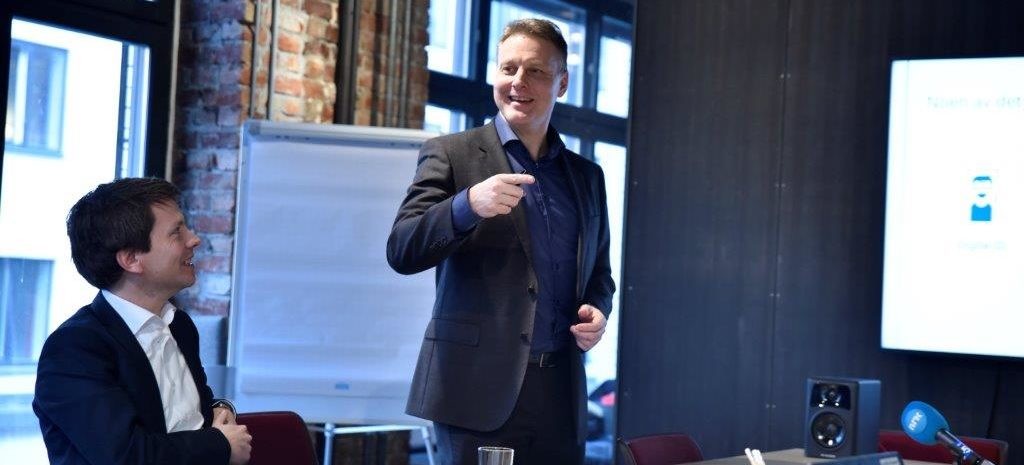A vivid example of an authoritarian leader capable of killing their opponents abroad without significant consequences is Saudi Arabia’s Crown Prince Mohammed bin Salman.
Nearly four years after the murder of journalist Jamal Khashoggi, who had to pay with his life for his criticism of Saudi Arabia’s war in Yemen, the crown prince is now in the spotlight again. When US President Joe Biden visited Saudi Arabia last week, he was received by the crown prince with a spontaneous greeting. The talk was mainly about oil, not human rights.
Saudi Arabia also clashed with Turkey, which was initially angered by the brutal killings carried out by Saudi death squads at the Saudi consulate in Istanbul.
A new kind of anger
According to experts, repression of cross-border dissidents is nothing new, but as digital technology has made it easier for dissidents to spread criticism of those in power, they have also been exposed to uncommon types of anger in the past.
This is because dictators and authoritarian regimes feel more threatened by opposition parties in exile than ever before, according to Marcus Michaelson, who researches authoritarianism at Vrije Universiteit in Brussels.
The American organization Freedom House states that between 2014 and 2021 there were at least 735 direct physical attacks on opposition figures across national borders. 36 different regimes are behind it, including Russia, China, Turkey, Saudi Arabia, Iran, Pakistan and Rwanda.
Four regimes are on the list in 2021, including Belarusian, which forced a passenger plane en route from Greece to Poland to land so they could arrest a Belarusian activist and his Russian girlfriend.
Many different methods
In recent years, there have been several sensational attacks, such as the poisoning of former Russian intelligence agent Sergei Skripal in Salisbury, United Kingdom in 2018. He survived a nerve agent attack, but a British woman randomly lost her life.
The murder of Chechen Georgia Zelimkhan Khangoshvili is another example. In August 2019, he was shot and killed in Berlin by someone on a bicycle. A Russian man has been sentenced to life in prison for the murder. The judge concluded that the murder order was given by the Russian authorities.
– The methods vary from harassment to murder, says Katia Roux of Amnesty International in France.
Domestically, too, there are examples of cases where authoritarian regimes are suspected of ordering the assassination of opposition figures. Last summer, a Danish court sentenced a Norwegian to seven years in prison for espionage and plotting to kill an exiled Norwegian living in Denmark. Earlier, another Iranian exiled from the same group was killed in the Netherlands. Iranian authorities deny that they are behind it.
Turkish surveillance
Turkish journalist Can Dündar, who lives in Germany and runs a Turkish-language website and radio station, believes he has evidence that Turkish intelligence is monitoring him.
– In the first year, our office was filmed by a Turkish camera team, who provided all the information about our office, including our address and today’s job list, the time we were there, the time we left the premises and so on. And it was described as a “traitorous base” plotting things against Turkey, Dündar told AFP news agency.
He believes that Turkish intelligence is very active in pursuing opposition figures, especially in Germany and France. In July last year, among other things, a Turkish journalist was attacked by three men in Berlin. They warned him not to write about more sensitive topics.
– Fear and paranoia
Even Pakistani journalist Taha Siddiqui does not feel safe. He fled to France after an attempted kidnapping which he believed was behind Pakistani intelligence. In 2020, his family was contacted by an intelligence officer who said that “if Taha thinks he is safe in Paris, he is wrong. We can reach anyone, anywhere.”
The threats were made the same year that a Pakistani journalist died in Sweden and a Pakistani human rights activist died in Canada, both under mysterious circumstances. The previous year, a British court convicted a man of murder hired by a Pakistani blogger living in the Netherlands.
– They make me paranoid, suspicious, scared, even in exile, says Siddiqui, who founded Dissident Club in Paris.
Digital technology has given oppressive regimes a new toolbox for avoiding persecution and attacks on dissidents from political and diplomatic consequences, according to Michaelson. And it’s cheap. One of the most popular tools is the Israeli-made Pegasus spy tool.
– They don’t have to invest a lot of human resources or send agents to spy on dissidents overseas, says Michaelson.
– Like a radio station
Among those who have had their phones hacked is Ayman Nour from Egypt, who lives in exile in Turkey and was a friend of Khashoggi. Citizen Lab, which researches the new technology, said it had found two spyware on Nour’s phones, Pegasus and Predator. They were installed by two different regimes.
Nour believes that espionage is a form of organized crime. When he used the phone, he always thought of it as a radio station that anyone could listen to.
According to Amnesty International, as many as eleven governments have purchased Pegasus. Thus, they can implement surveillance that is invisible and untraceable from anyone.
Activists in China, who stand up for the rights of the Uighur minority, often experience digital threats far worse than physical ones, according to Michaelson.
Meiirbek Sailanbek, who belongs to China’s Kazakh minority, said he deleted all Chinese apps from his phone when he moved from China to Kazakhstan. He also removed the numbers of his brothers and sisters who still live in Xinjiang in northwest China, where the US has accused China of genocide against Uyghurs.
Threats to families in China
When Kazakh authorities arrested the leader of the human rights organization Atajurt, Ceylonbek fled to Paris, because he had become a member and wrote for it under a pseudonym.
But authorities in Kazakhstan still managed to find his identity, and since then Chinese authorities have threatened his brother and sister with prison if they engage in the same activism as him.
– Meiirbek, your brother and sister are in danger, you have to stop, read a text message from his mother.
Ceylonbek risks arrest if he returns to China or Kazakhstan. But he also doesn’t feel safe in Turkey, Pakistan, Arab countries or Russia. They want to have good relations with China, and Ceylon is sure that they will say yes if China asks to extradite him.

“Music maven. Evil pop culture lover. Unapologetic creator. Friend of animals everywhere.”






